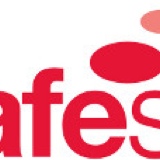Information
-
Student
-
Conducted on
-
Assessed by
-
NAME:
-
TAFESA ID:
Attaching Gauges
-
What must be observed on your gauges before attaching them to a system? Why must an air purge be undertaken before operating the system? Describe the terms and what are the purposes of the following: Forward seated Back seated Cracked off the back seat
-
Attaching Gauges
-
Attempt 1
-
Attempt 2
-
Attempt 3
Topic 6 Reclaim, Recovery and Recycling Refrigerant
-
REQUIRED SKILLS AND KNOWLEDGE
Refrigerant recovery systems and procedures
Vapour
Liquid
Recovery cylinders
Disposing of recovered refrigerants
Safety and general issues when recovering refrigerant -
What is the primary reason for recovering refrigerant? Can reclaimed refrigerant be reused? What precautions must be taken when reclaiming refrigerant to ensure no contamination occurs? What is the safe fill capacity of a reclaim bottle for waste refrigerant? What factors must be considered when filling a cylinder?
-
Attaching recovery unit and recovering refrigerant
-
Attempt 1
-
Attempt 2
-
Attempt 3
Topic 7 Pressure Testing and Topic 8 Leak Detection
-
REQUIRED SKILLS AND KNOWLEDGE
Define
Pressure testing procedures and test pressures per Standards,
Codes, Regulations and manufacturers requirements
Safety and general issues when pressure testing refrigeration systems
Leak detector types and applications (electronic, halide, bubble, ultra violet, Sulphur stick, litmus paper etc)
Hazards and related safe working practices (working around rotating machinery, open flame, ultra violet light etc)
Care and maintenance (delicate electronic equipment, changing sensor tip filters, changing gas cartridges etc)
Calibration (auto calibrating , send to a specialist etc)
Leak testing methods -
What is the purpose of pressure testing a system? What methods can be used to leak test a system? What hazards exist when pressure testing a system? At what equivalent temperature(s) are systems pressure tested to? How long should a system be pressure tested for? What maintenance can be done on an electronic leak detector?
-
Pressure and Leak Detecting Testing Procedure
-
Attempt 1
-
Attempt 2
-
Attempt 3
Topic 9 evacuation and dehydration
-
REQUIRED SKILLS AND KNOWLEDGE
Evacuation and dehydration
Deep vacuum methods
Triple evacuation
Vacuum Measurement
Instruments
Drop test
Vacuum Pumps
Types, size and applicatio ns
Use and connections
Care and maintenance
Safety and general issues when evacuating refrigeration systems -
What actually occurs in the system when it is being evacuated? Describe a "deep vacuum" Explain the triple evacuation procedure What is the purpose of triple evacuation? What instruments can be used to test the level of vacuum? What is a "drop test" What is the difference between a single stage vacuum pump and two stage vacuum pump? How often should oil in a vacuum pump be changed?
-
Evacuation Procedure
-
Attempt 1
-
Attempt 2
-
Attempt 3
Topic 10 Refrigerant and Oil Charging
-
REQUIRED SKILLS AND KNOWLEDGE
Refrigerant cylinders, storage and safe handling
Refrigerant charging methods
Vapour
Liquid
Safety and general issues when charging refrigeration systems including personal
protection equipment
Refrigerant oil removal and addition tools, procedures and safety -
How must refrigerant cylinders be stored? What safety precautions must be observed when utilising refrigerant cylinders? Why is it best practice to "liquid charge" systems? What precautions must be observed when liquid charging systems? When would it be appropriate to vapour charge a system? How is refrigerant oil removed from a system? How is the refrigerant oil disposed of? How is refrigerant oil replaced into a system?
-
Refrigerant and Oil Recharging practical assessment
-
Attempt 1
-
Attempt 2
-
Attempt 3
-
Student Signature
-
Lecturer Signature






